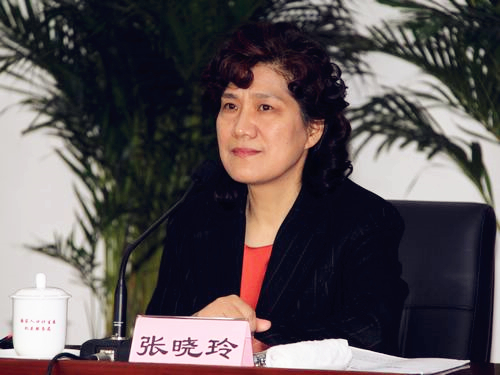China further restricts the use of death penalty
- By Zhang Xiaoling
 0 Comment(s)
0 Comment(s) Print
Print E-mail China.org.cn, January 8, 2015
E-mail China.org.cn, January 8, 2015
Since the United Nations passed the Second Optional Protocol to the International Covenant on Civil and Political Rights, aiming at the abolition of the death penalty, the international community has seen a wave calling for the restriction and abolition of the death penalty.
|
|
|
Zhang Xiaoling, professor of the Human Rights Research Center at the Party School [File photo] |
Chinese law places strict restrictions on the use of the death penalty. Article 49 of the Criminal Law stipulates that offenders who are under the age of 18 at the time of the crime or women who are pregnant during the trial shall not be subject to capital punishment. The death sentence with two years' probation, which was first given in China, also plays a role in limiting the number of capital punishment sentences. In 2007, the Supreme People's Court, China's top court, took back the power to review death sentences, which has since then played an essential role in preventing wrongful executions. In 2011, the National People's Congress passed an amendment to the Criminal Law which exempted 13 crimes that were previously subject to the death penalty. The amendment also stipulates that offenders above the age of 75 are not subject to the death penalty, unless they commit a murder with exceptional cruelty.
The National Human Rights Action Plan (2012-2015) put forward new requirements on restricting the use of capital punishment in 2012. Since then, China has made further progress on protecting people's right to life.
The Supreme People's Court strictly reviews capital punishment cases
The Supreme People's Court overturned the death sentence for the perpetrators in a high-profile case.
An 11-year-old girl in Hunan Province was raped and forced into prostitution in 2006. The case triggered public outcry after the girl's mother was put into a "reeducation through labor" camp in 2012. The mother called for the death penalty for the seven offenders in her daughter's case.
In July 2013, two of the convicts were sentenced to death by the Hunan Higher People's Court, but the Supreme People's Court overturned the sentence in June 2014, and ordered a retrial. The Hunan Higher People's Court then changed the death sentence to life imprisonment in September.
The Supreme People's Court abided by the rule of strictly controlling capital punishment and decided not to hand down death penalty for the two convicts, which demonstrated China's resolution in limiting the use of capital punishment.






